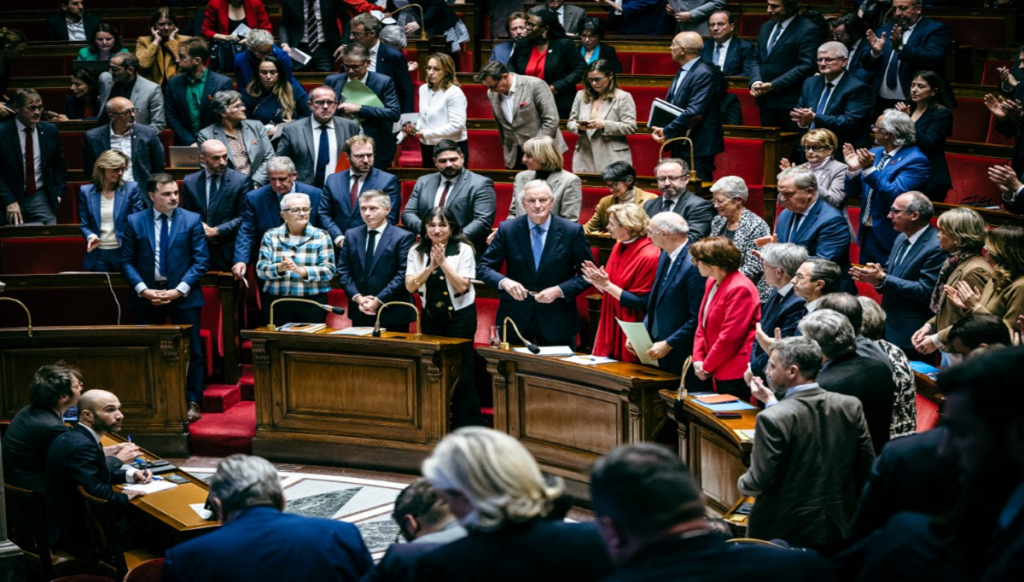France is experiencing a political turmoil after Prime Minister Michel Barnier was forced out by a decisive no-confidence vote, marking a historic moment in the nation’s governance. This event comes bearly three months after Barnier assumed the role of Prime Minister under President Emmanuel Macron.

The vote comes after widespread outrage among opposition parties, who condemned Barnier’s controversial decision to bypass parliament and use special powers to push through his budget. This move, seen as a breach of democratic norms, led to the first collapse of a French government via a no-confidence vote since 1962.
France’s political landscape has been shaky since early elections last summer left no party with a parliamentary majority. The motion of no-confidence required 288 votes to succeed but garnered a resounding 331. As a result, Barnier must step down, and his contentious budget plan is now void. However, he may temporarily remain in office while President Macron selects his replacement.
Barnier faced criticism from both ends of the political spectrum. The left-wing New Popular Front (NFP) and the far-right National Rally (RN) united in opposition to his economic policies. His proposed €60 billion deficit reduction plan, coupled with changes to social security laws, drew sharp rebukes. RN leader Marine Le Pen labeled the budget “toxic for the French people.”
Ahead of the vote, Barnier defended his measures as necessary for tackling France’s debt crisis, arguing that his removal would not resolve the nation’s financial woes. Despite this, Le Pen insisted his removal was the only solution, though she stopped short of calling for Macron’s resignation. Still, she warned that public dissatisfaction with the president could escalate if he fails to address voter concerns.
President Macron, who recently returned from Saudi Arabia, is set to address the nation on Thursday. Although the no-confidence vote does not directly impact him, Macron has made it clear that he will not step down. His immediate priority is to appoint a new Prime Minister, especially with U.S. President-elect Donald Trump scheduled to visit Paris soon for the reopening of Notre-Dame Cathedral.
France now faces a prolonged period of political uncertainty, with new elections off the table until July. As the parliamentary gridlock deepens, the country’s political future remains masked in uncertainty.


